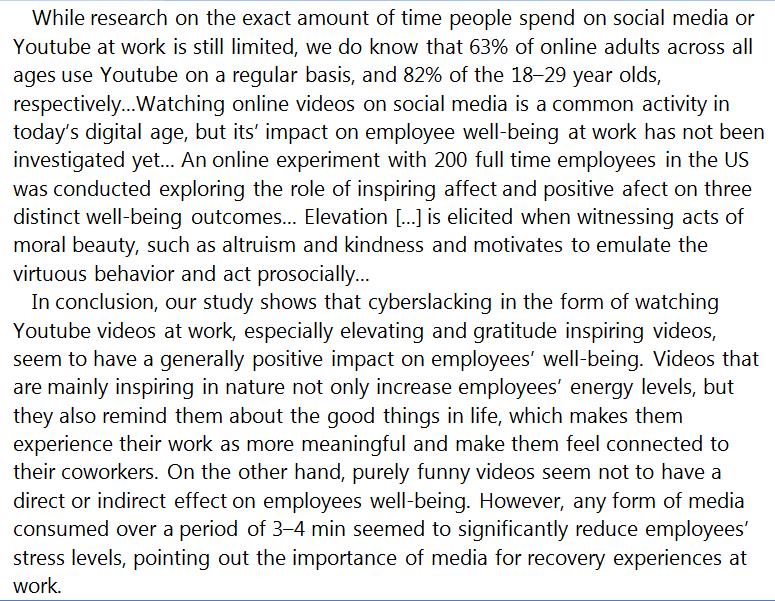Momentum growing to classify digital addiction.
Pop culture and society have an obsession with appropriating mental health terminology. It’s commonplace to hear things like, “I’m so depressed, my dog died,” or “My ADD is acting up today.” Even references to more severe issues like bipolar disorder and even schizophrenia are tossed around as jokes or excuses for certain behaviors, despite the lack of an actual diagnosis.
But a new debate is raging about a commonplace term, “tech addiction.” Is it possible to be clinically addicted to your mobile device or internet use? Some theories say of course not, but other sources are now citing very real medical issues surrounding the uncontrollable need to engage with digital life.

Image: Modern Family
Impact on young
Before you dismiss this as “first world problems,” take note that there have been documented suicide attempts, especially in young people, not just over the content they view online but the ongoing activity of being on their devices itself. According to a report from NPR, “‘Digital addictions,’ whether to social media, video games, texting, shopping or pornography, are not official mental disorders listed in the latest edition of the Diagnostic and Statistical Manual of Mental Disorders (DSM-V), and there’s a debate among psychologists about whether that should change.”
Brain scans
Experts have even studied brain scans and discovered that the same neural pathways that are pleasantly triggered by drugs or alcohol in substance abusers are activated by internet activity in people who are obsessed with being on their devices. Moreover, one expert even stated that it is possible to build up a tolerance in much the same way that drug tolerance develops, leading to more and more time spent online.
No escape
Unfortunately for those who are affected by this tech addiction, it’s nearly impossible to get away from their trigger. While a recovering alcoholic may find himself at an event where alcohol is served, he will not be required to consume it; that’s not the case for tech addicts. Just picking up their phone to answer a call or text, or to reply to an email, or even just to use their mobile wallet puts the device back in their hand, ready and connected to the internet.
Costly
There are a few in-patient facilities treating tech addiction, but obviously many people may find them cost-prohibitive. Without a formal diagnosis and the medical establishment to back it up, getting things like coverage through your health insurance provider or time of from work to seek treatment might be difficult.
Pop culture and society have an obsession with appropriating mental health terminology. It’s commonplace to hear things like, “I’m so depressed, my dog died,” or “My ADD is acting up today.” Even references to more severe issues like bipolar disorder and even schizophrenia are tossed around as jokes or excuses for certain behaviors, despite the lack of an actual diagnosis.
But a new debate is raging about a commonplace term, “tech addiction.” Is it possible to be clinically addicted to your mobile device or internet use? Some theories say of course not, but other sources are now citing very real medical issues surrounding the uncontrollable need to engage with digital life.

Image: Modern Family
Impact on young
Before you dismiss this as “first world problems,” take note that there have been documented suicide attempts, especially in young people, not just over the content they view online but the ongoing activity of being on their devices itself. According to a report from NPR, “‘Digital addictions,’ whether to social media, video games, texting, shopping or pornography, are not official mental disorders listed in the latest edition of the Diagnostic and Statistical Manual of Mental Disorders (DSM-V), and there’s a debate among psychologists about whether that should change.”
Brain scans
Experts have even studied brain scans and discovered that the same neural pathways that are pleasantly triggered by drugs or alcohol in substance abusers are activated by internet activity in people who are obsessed with being on their devices. Moreover, one expert even stated that it is possible to build up a tolerance in much the same way that drug tolerance develops, leading to more and more time spent online.
No escape
Unfortunately for those who are affected by this tech addiction, it’s nearly impossible to get away from their trigger. While a recovering alcoholic may find himself at an event where alcohol is served, he will not be required to consume it; that’s not the case for tech addicts. Just picking up their phone to answer a call or text, or to reply to an email, or even just to use their mobile wallet puts the device back in their hand, ready and connected to the internet.
Costly
There are a few in-patient facilities treating tech addiction, but obviously many people may find them cost-prohibitive. Without a formal diagnosis and the medical establishment to back it up, getting things like coverage through your health insurance provider or time of from work to seek treatment might be difficult.
